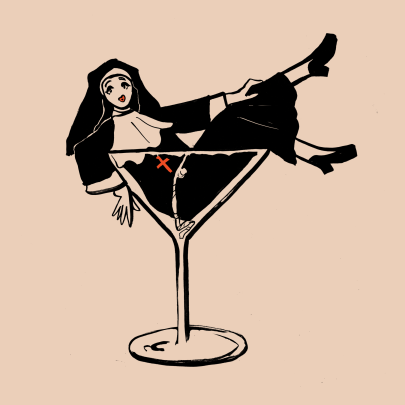Mar 31, 2014 Theatre
Silo Theatre, directed by Shane Bosher
Q Theatre
March 29, 2014
Angels in America, Part 1: Millennium Approaches – review
Perestroika, part two of Tony Kushner’s tour de force, Angels in America, uses as its launching pad an analysis of communist theory in the late Soviet era: are we doomed? Will the past release us? Can we change in time? Perestroika means ‘restructuring’ and as the Soviet Union and its formal systems of belief disintegrated, so the ‘AIDS plague’ afflicting America challenged fundamental assumptions about the meaning of life, death and religious belief.
Abandonment is a telling motif: in despair, God has abandoned his creation. Prior (Gareth Reeves) continues to survive with AIDS, while, literally and metaphorically wrestling with the Angel (Mia Blake) who has designated him ‘Prophet’ – to bring back the world to God and God to the world. Louis (Dan Musgrove) wrestles with his guilt over abandoning Prior, while indulging in a passionate affair with Joe who, having abandoned his wife Harper (Chelsie Preston Crayford), believes he has found the love he so desperately wants.
Roy Cohn (Stephen Lovatt), nursed by Belize (Jarod Rawiri), is dying, still cheating, wrangling the system for his personal advantage and fighting to his last belligerent breath to avoid being struck off. Nevertheless, the law abandons him and Roy is stripped of his status as a lawyer.
While Part 1, Millennium Approaches, examines the culture of the Reagan years and the crisis of the arrival of AIDS, Perestroika tackles more directly the question of religious belief, how it is conceived and realised. Using ecstatic sexuality as an explicit metaphor, it explores the hype, the poetry, the theatricality of the human imagination and its notions of God, angels and religious ritual. The Angel’s visitations cause erections; a kiss from her results in orgasm. In a hilarious parody of Mormonism, the Angel directs Prior to find “sacred prophetic implements, in the kitchen, under the tiles, under the sink”.
On one level, the play is a searing analysis of the absurdity and cruelty of religion with its fixed ideas and idolising of death; conversely, it is an affirmation of life in all its chaos, imperfection, bitterness and joy. And, at the moral heart of the play, Kushner places two deeply humane caregivers who live on the social margins: the nurse Belize, who is a gay African-American, and Hannah, a Mormon mother.
Despite a slightly ponderous first act, Perestroika is a play that soars from the intimate to the universal, from naturalism to the gloriously fantastical. It’s audacious in conception and, in Shane Bosher’s production, consummate in execution.
Scouring deep into body and soul for its revelations, both human and divine, it is at times devastatingly and breath-takingly funny. Mia Blake’s Angel, by turns Shakespearean and petulant, hovers over the play, telling us, “My wrath is as fearsome as my countenance is splendid!” Every one of the other actors plumbs the depths and deliver profoundly human characters struggling towards a life worth living in a place worth inhabiting.
Prior’s final speech to the audience is a brave and moving conclusion: not merely a simple goodbye but a blessing, an expression of faith and optimism in the resilience and decency of humanity.
It’s a hugely ambitious venture, mounting such an extraordinary work: seven-and-a-half hours of theatre. Though played in two parts, it is one work and to experience the scale, the scope of the ideas, the drama, the production, it is essential to see it in sequence: either on the same day if you have the stamina, or separately.
Angels in America is Bosher’s swan song as director of Silo Theatre. For him, for the cast and production team, and of course for Kushner, it is outstanding achievement: go and see it.
To April 13.
Photo of Matt Minto and Dan Musgrove by Andrew Malmo.





